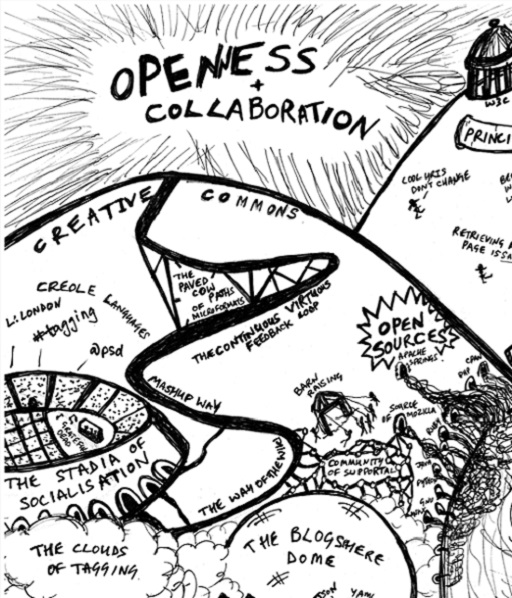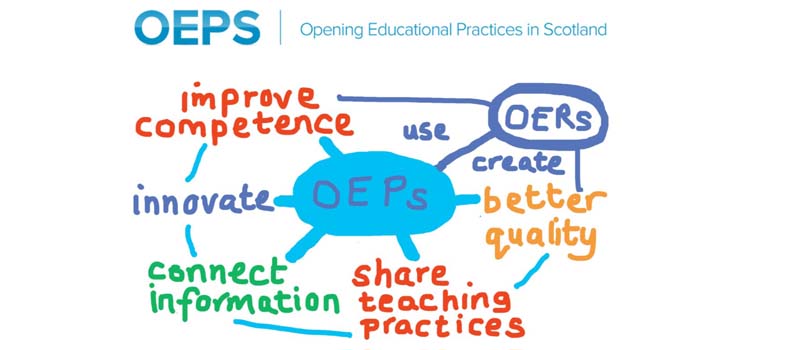5.2 Sharing processes and outcomes
Earlier in this course you looked at different interpretations, or characteristics, of ‘openness.’ Openness can refer to how one does something (in other words the processes or tools that are used) and the outputs produced, but it always takes place within a specific context.
Sharing methodologies, data, practices, ideas and processes
Creating OER involves sharing resources you have created, but what about sharing the progress of a project, idea, research or sharing data?
For example, you may work on a project. How do you let others know about the project’s progress and share outputs? Often these are shared only with selected audiences. Unless there is reason for not sharing the project’s progress and documentation beyond identified stakeholders (e.g. for confidentiality reasons, see Section 4.3 [Tip: hold Ctrl and click a link to open it in a new tab. (Hide tip)] ), would being more transparent help the project to develop, engage new audiences and/or receive feedback?

Making blogging or tweeting part of your everyday practice might involve an initial change in how you work to ensure that you make time for this type of activity. You can read more about open dissemination in the ‘Open dissemination’ and ‘Reflecting in the open’ sections of the OER Hub course Open Research.
Open research and open access
Maybe your role has a research component or you have an interest in research? You might be familiar with the terms open access and open research. The former aims to make data and research outputs such as peer-reviewed research papers available openly so that everyone, regardless of whether they are based at an educational institution or have a subscription, can access them. You can browse a Directory of Open Access journals (DOAJ) to find out what journals exist in your subject areas. It is also worth remembering that you can often upload a pre-proof version of journal articles to sites where you can showcase your research, such as ResearchGate and Academia.edu. Open peer review of journal submissions rather than anonymous closed review is also gaining traction, with an October 2015 study revealing that reviewers were ‘more constructive’ and offered ‘slightly higher quality’ appraisals of work when the review process was public.
Open research is about making public not just the end results of research but the process, methods, instruments and tools that are developed as part of the research process. Social media and blogging is often key to this process (find out more about digital scholarship). You might already use social media such as Twitter or have a blog, but these can be utilised in ways to share and develop ideas before they are published formally. Where appropriate, anonymised datasets are also shared as part of the open research process. You have an ethical obligation to ensure that data is anonymised appropriately, and you will need to ensure that you have done this before uploading a dataset (perhaps to a repository such as Figshare).
5.1 Introduction
